Jessica Gunning, star of Richard Gadd’s Netflix sleeper hit Baby Reindeer, talks about the experience and impact of working on such an intense — and much-discussed — show.
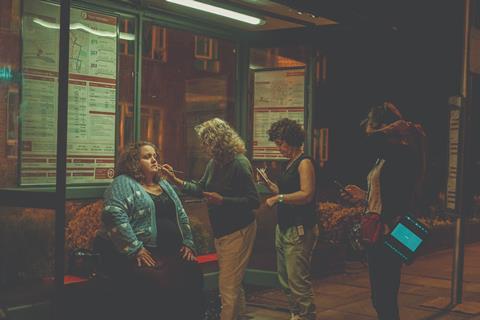
Since it premiered on Netflix on April 11, Baby Reindeer has become one of the most watched — and talked-about — shows of the year.
Episode one of writer/star Richard Gadd’s lightly fictionalised series about his own experiences at the hands of a female stalker (played by Jessica Gunning) was watched by 1.7 million viewers in its first week, according to Netflix figures, gaining a further 3 million viewers in week two. The Clerkenwell Films production quickly topped the streamer’s English-language TV chart, holding pole position well into May, and remains in the top 10 at time of writing.
With minimal marketing ahead of its premiere, Baby Reindeer has been a word-of-mouth success. “Everywhere I’m going, people are telling me they have watched it,” Gunning tells Screen International in late May. “Richard and I went to America recently and were asked about the audience response. He said that maybe the world’s hurting a little bit more than we thought, which I was very moved by.”
Hurt is a central theme of Baby Reindeer, in which Gadd plays Donny (a fictionalised version of himself), a wannabe comedian and bartender whose simple act of kindness towards a lonely woman named Martha (Gunning) leads to months of intense (and unwanted) romantic attention. Donny’s own suffering — the show also explores grooming and sexual abuse — means he is unable to go to the police or even draw clear boundaries with Martha, becoming somewhat complicit in her behaviour.
That complex dynamic immediately appealed to Gunning, who was familiar with the material from seeing Gadd’s 2016 play Monkey See, Monkey Do and reading the screenplay of his sell-out 2019 Baby Reindeer stage show, for which she had been unable to secure tickets.
“[The script] was one of the best things I’ve ever read, it gave me goosebumps,” says the actress, who has previous experience on stage, in features including Pride and Summerland, and TV series such as The Outlaws and Fortitude. “I thought Martha was one of the most interesting characters I had ever come across.”
Gunning’s audition involved an early sequence in which Martha tells Donny she wants to unzip him and climb inside. This, says Gunning, gave her a real insight into the character’s mindset.
“For me, this was probably the most romantic moment in the whole show. She’s imagining him like a teddy bear, a safe space. I practised with a friend, and she was like, ‘This is terrifying.’ This was my first indication I saw Martha a little bit more sensitively. Looking at her from outside, you could probably play her as scary. I definitely don’t think that she is or intends to be. From her angle, it’s kind of an unrequited love story.”
Gunning has been surprised by viewers who see Martha as the straightforward villain of the piece, although notes this viewpoint has come largely from men. For her, the character is far more nuanced. “She’s not a psychopath, she’s not calculated. There is a real, logical and emotional sense to her that I completely recognise.
“I looked into limerence, which is an obsession with being in love,” she continues. “People who have it relive certain moments or imagine scenarios with the other person. I would do that for Martha. When Donny agrees to go for coffee with her, for example, I would imagine how she sees that date going. And the beauty of Donny is he would give her attention that would feed into her fantasy. It’s a rare feeling for her to be seen.”
Despite the increasing aggression with which Martha pursues Danny — she threatens his parents, disrupts his comedy shows and violently attempts to derail his burgeoning relationship with transgender girlfriend Teri (played by Nava Mau) — there is a definite kinship between the two.
“They are both undiscovered and misunderstood,” Gunning notes. “When she says she’s a lawyer, you think that’s a lie until Donny sees her law degree. The life she’s pretending to live is the one she believes she should have had. And Donny views himself as being an undiscovered comedic talent — people just don’t realise how brilliant he is. So there is a similarity, a connection.”
Bold storytelling
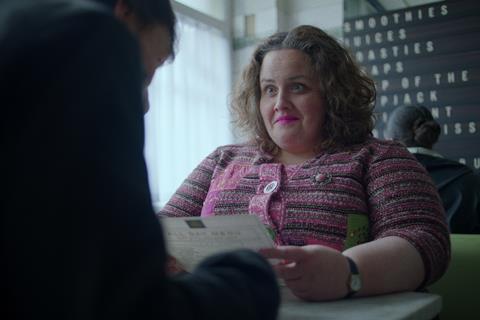
While viewers only get a glimpse of events that led Martha to behave as she does — via a final voicemail left for Donny in which she mentions finding childhood solace from her fighting parents in a cuddly reindeer — we witness first-hand Donny’s grooming and abuse by a predatory TV executive, played by Tom Goodman-Hill. It is bold, uncompromising storytelling, and a reminder that, as entertaining as Baby Reindeer is, it is depicting real, and raw, events.
That has led some viewers to attempt to track down the real-life Martha, a fascination Gunning understands. “But we’re not filming a documentary,” she asserts. “It would have been a completely different thing if we did. Identities were changed. It was never our intention [to uncover the real Martha].
“I absolutely felt a responsibility for Martha and Donny as characters, and for doing justice to this story,” continues Gunning, who notes the production employed both intimacy co-ordinators and mental health support workers during the seven-month shoot. “Everyone, cast and crew, knew how special this could be. There was definitely a sense of let’s do this story justice, let’s get it right.”
Get it right they did, as the show is having an impact beyond viewer numbers and awards consideration. “Richard is the ambassador for a charity called We Are Survivors [for male survivors of sexual abuse and rape],” explains Gunning, “and they have had something like a 200% increase in email referrals since the show came out. If we can entertain people and make them talk, that’s one thing. But if you’re watching the show and it changes your life a little bit — that’s amazing.”
Having played what she describes as “the best character I could have hoped for”, Gunning, who will next be seen in season three of Stephen Merchant’s BBC/Prime Video comedy The Outlaws, is staying tight-lipped on future projects — but knows what she hopes to see more of on screen.
“It’s so refreshing to see something on TV that’s complicated and messy,” she says of Baby Reindeer. “It’s not all tied up neatly at the end. I think sometimes we patronise audiences and say that everything needs to feel safe. But life isn’t like that. I agree with trigger warnings, for sure. But this shows that people are hungry for honesty.”




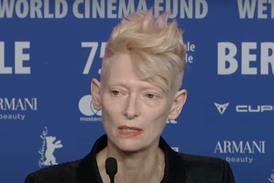
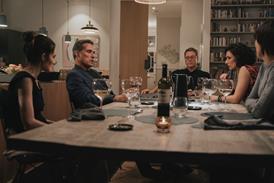
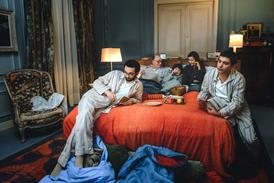
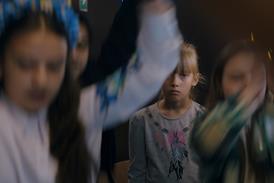




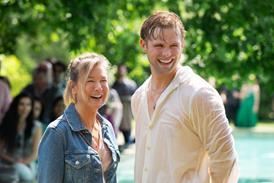



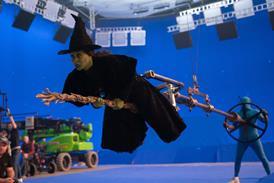
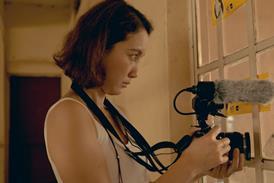







No comments yet